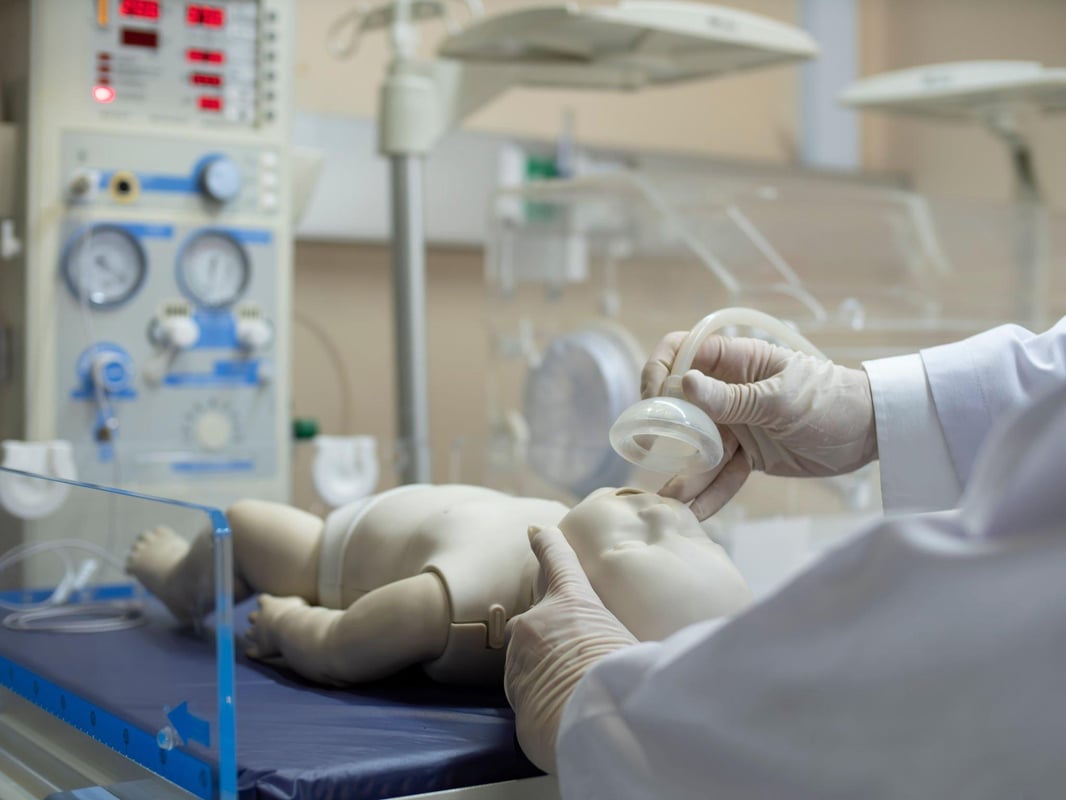$276 total
$2,075 total
$270 total
$410 total
$365 total
$150 total
No cost info
$285 total
$150 total
No cost info
Pediatric Advanced Life Support (PALS) is an invaluable skillset for anyone working in the healthcare field, particularly those who interact with children. This blog post will guide you through everything you need to know about PALS classes in Baton Rouge, from training requirements to certification processes. Well also look at how you can use this certification to further your career and what additional classes you might consider taking after becoming PALS certified.

Pediatric Advanced Life Support (PALS) is a protocol designed to aid in the urgent treatment of children who are experiencing severe medical emergencies, such as cardiac arrest or respiratory failure. PALS classes provide a comprehensive training program that equips healthcare professionals with the necessary knowledge and skills to respond to these critical situations effectively.
Before you can begin your PALS training, there are a few prerequisites you must fulfill:
You must have a basic understanding of medical terminology, particularly in relation to pediatric care.
A Basic Life Support (BLS) certification is typically required before you can undertake PALS training. This ensures you have the foundational knowledge necessary for advanced study.
Some programs may require you to be currently employed in a healthcare-related field, or studying towards a relevant qualification.
When choosing a PALS class, there are a few key factors to consider:
Accreditation: Ensure that the course is recognized by a reputable healthcare organization.
Experienced Instructors: Look for instructors who have real-world experience in pediatric emergency care.
Comprehensive Curriculum: The program should cover all aspects of Pediatric Advanced Life Support, including theory and practical application.
PALS classes typically involve a mixture of lectures, demonstrations, and hands-on practice. You'll learn about the different types of pediatric emergencies, how to recognize them, and the appropriate response protocols. In addition to this theoretical knowledge, you'll also gain practical skills through simulated emergency scenarios.
The PALS certification process usually includes a written exam and a practical skills test. The written exam covers the theory you've learned throughout the course, while the practical test assesses your ability to apply this knowledge in a simulated emergency situation.
Once you're PALS certified, you can take on more advanced roles in the healthcare field. For instance, you might work in pediatric emergency care, or as a pediatric nurse. However, remember that PALS certification is just one part of your professional profile. Other factors, such as your overall experience, other qualifications, and your performance in interviews, will also influence your job prospects.
After becoming PALS certified, you might consider furthering your education with additional classes. For instance, you could pursue Advanced Cardiac Life Support (ACLS) certification, which is similar to PALS but focused on adults. Alternatively, you could specialize further in pediatrics by taking a course in Neonatal Resuscitation.
Keeping your PALS certification up to date is crucial. Refresher courses help ensure your knowledge and skills are current. These courses are typically shorter and more condensed, focusing on the latest updates in pediatric emergency care.
Both online and in-person PALS classes have their advantages. Online classes offer flexibility and convenience, while in-person classes provide hands-on experience and immediate feedback. Consider your learning style and schedule when choosing between these options.
Beyond PALS, there are other advanced pediatric courses you might consider. For example, the Pediatric Emergency Assessment, Recognition, and Stabilization (PEARS) course is designed for healthcare providers who infrequently see critically ill children.
Combining your PALS certification with other qualifications can make you a more versatile healthcare professional. For example, if you're also certified as a Certified Medication Aide, you could administer medication to pediatric patients in emergency situations.
Becoming PALS certified is a significant step forward in your healthcare career, particularly if you're passionate about pediatric care. Whether you're just starting your career or looking to specialize further, PALS certification can open up new opportunities and deepen your professional expertise. Remember, ongoing education is key in the ever-evolving field of healthcare. So, keep learning, stay updated, and strive to provide the best care possible to your patients.
With Dreambound, find comprehensive guides that make starting in this field easier, each suited to a specific city. If you've planned a move or are doing research for another vocation, our other guides may be able to help.
Exploring different career paths? Dreambound offers in-depth guides to assist you in making well-informed decisions. Explore some of these resources below:
Dreambound's platform allows prospective students to find the right educational program for them through searching, filtering, and connecting with our extensive selection of career & technical education partners.
Dreambound has over 70 programs across healthcare, technology, business, and industrial trades. This includes programs such as Medical Billing, Cybersecurity, and welding.
Some of our schools offer financial aid for those who qualify. Many others offer payment plans, where you can pay the cost of class over time.
Yes, Dreambound offers many online programs. On Dreambound's search, you can filter by online, in-person, and hybrid (part online, part in-person).
Dreambound is completely free for you to use! We are supported by schools and organizations who pay to advertise on our website, so we can offer all of our career resources for free.